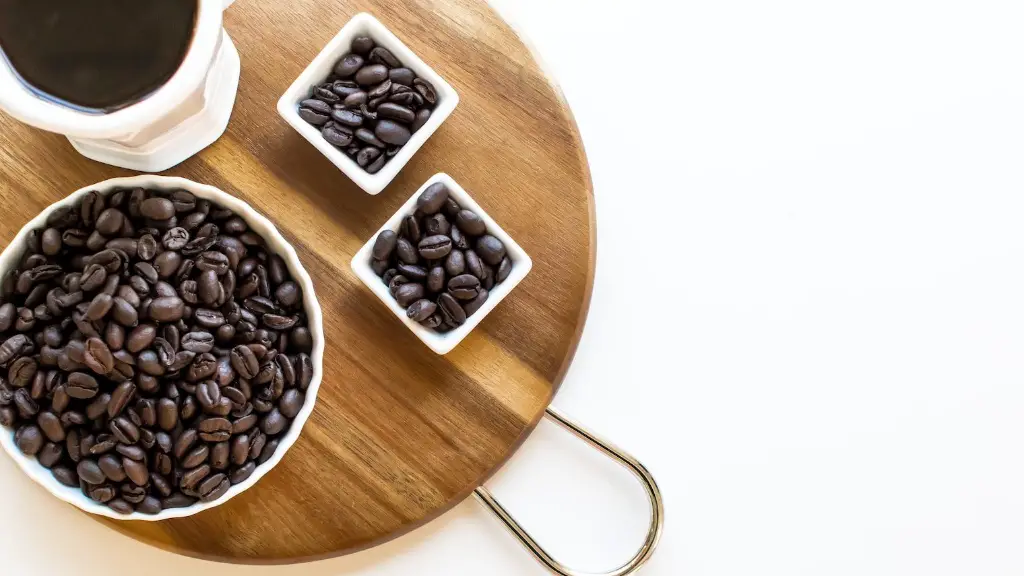The light-hearted euphemism “coffee runs right through me” might be overlooked by more sensitive individuals, but it doesn’t take away the fact that drinking coffee can cause unfortunate bouts of diarrhea in some individuals. As basic as the occurrence may seem, it is something that quite a few people have experienced and something that is worth exploring in more depth.
It turns out that the amount of caffeine and other active ingredients in coffee actually stimulate movement in the large intestine, which is why some people experience a quick passage of food through their system. Although the same effect happens when a person drinks tea or energy drinks, the fact that coffee contains so much caffeine can lead to further stimulatory effects. Even decaffeinated coffee can have some effects, as it usually still contains small amounts of caffeine and other formulations of stimulants.
There is another side to consider when it comes to coffee’s potential to create digestive problems, however. Caffeine can also relax the sphincter muscles in the digestive tract, which can cause waste to exit the body before it has been adequately absorbed. This is because the muscles that form an important part of the digestive tract are not working to deliver food at the right speed.
In addition, coffee can lead to other gastrointestinal issues, such as heartburn and indigestion. The caffeine and other active ingredients can actually irritate the lining of the stomach and the intestines, leading to further problems and diarrhea.
It’s also important to note that some people may be more sensitive to the effects of coffee, and this can result in them having a more extreme reaction to the beverage than others.
In an effort to help those who experience digestive issues when drinking coffee, some experts have suggested reducing the amount consumed or even avoiding caffeine all together. The idea is that by limiting irritants, the digestive system can have time to heal and people can find out their own safe level of consumption.
Dietary Considerations
Apart from the amount of coffee consumed, there may be other dietary considerations that can contribute to why some people experience digestive problems. For instance, caffeine has been known to interfere with iron absorption, which can lead to more persistent issues.
It’s not just coffee that can cause problems though. Eating processed foods with added sugar can also be a contributing factor, as can not drinking enough water to keep the digestive system functioning optimally. Furthermore, some people may find that the use of supplements or medications can also be the cause of their digestive issues.
In general, it is always important to pay attention to what you are eating and drinking and to recognize the connection between food and health. It seems clear that coffee can cause digestive upset in some people, but it could be that a lifestyle that goes along with it is ultimately having a negative effect on the body.
Alternative Beverages
As mentioned earlier, reducing the amount of coffee consumed can help alleviate the digestive issues that some people experience. But the good news is that there are a number of alternative beverages that can give people the same energy boost that coffee can provide.
Vegetable and fruit juices, for example, although not providing the same amount of caffeine, do offer some vitamins and minerals that will be beneficial. Furthermore, fermented drinks like kombucha and kefir are also gaining in popularity, and offer the same digestive benefits of coffee without the caffeine.
Finally, there are herbal teas and tisanes that contain low levels of caffeine, as well as some of the same antioxidants and other health benefits that coffee does. These are often considered to be good options for those who want to reduce the amount of caffeine they consume but still want to get their caffeine fix.
Talk to A Doctor
Ultimately, it’s important to remember that everyone’s body and dietary needs are different, so it’s important to talk to a doctor or a nutritionist before making any drastic changes in order to ensure you are making the right choices for your health.
By talking to a qualified professional, you can better understand what may be causing your digestive issues. In addition, you can also get personalized advice about which lifestyle changes or dietary tweaks you could make that could result in less cramping and pain due to coffee consumption.
Positive Effects of Coffee
It’s also worth mentioning that coffee can actually have positive effects on the digestive system, such as improving the effectiveness of the intestines and aiding in digestion. The antioxidant compounds also have been known to improve digestion and fight against allergic responses.
As such, coffee may still have a place in an individual’s diet, but it should be consumed in moderation. If digestive problems do occur, then look at all the possible causes before diving into any drastic measures.
Eliminating Caffeine From Diet
If gastrointestinal symptoms continue, such as cramping and diarrhea, it may be necessary to completely eliminate caffeine from the diet. This means avoiding all caffeinated beverages, including tea, green tea, and energy drinks. In some cases, it may also be necessary to limit and reduce the amount of sodas, chocolate, and other caffeinated foods.
By weaning out of these kinds of foods and beverages, many times people are able to notice the difference within a week or two. Once the body has a chance to recover, it becomes easier to reintroduce these items into an individual’s diet, but in moderation.
Rethinking Caffeinated Beverages
When looking at how to handle the potential digestive upsets of coffee, it is important to rethink how you view caffeinated beverages. When consumed regularly, it’s not surprising that some people experience digestive issues, as their body is not used to the high levels of caffeine and other active ingredients.
That said, it’s important to recognize that not all coffees, teas, and energy drinks are created equal. There are different levels of caffeine in each, and some may just have a higher concentration than others. While it may be the case that some individuals need to reduce or even eliminate caffeine from their diet, it doesn’t mean all caffeinated beverages are bad, but rather that some types may just need to be consumed in moderation.
Timing Matters
Timing can also be an important factor in reducing digestive issues as a result of coffee consumption. For example, it may be best to avoid drinking coffee on an empty stomach, as digestion can be delayed, and instead, enjoy a cup of coffee with a meal or a snack.
On another note, it may also be helpful to limit your intake of coffee late in the day. Caffeine can interfere with the ability to fall asleep and can also cause restlessness throughout the night. This can further impair the digestive system, leading to more digestive issues.
Is Coffee Really the Culprit?
Finally, it is important to note that coffee might not always be the problem. In some cases, it could be that other dietary factors, such as eating too much sugar or consuming other caffeinated beverages, may be causing the digestive issues.
Therefore, it is important to look at all aspects of your diet, such as food, caffeine, and alcohol, and to recognize that the cumulative effects of these dietary changes can contribute to various digestive issues. After all, it’s essential to remember that everyone’s dietary needs are unique, and everyone needs to find the right balance of foods and beverages that works best for them.





